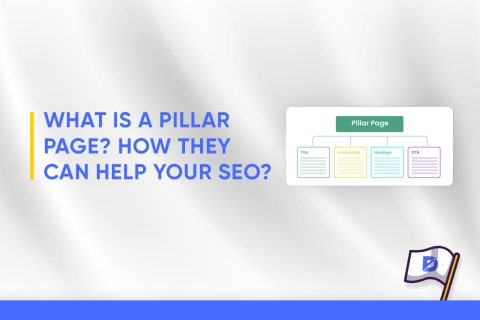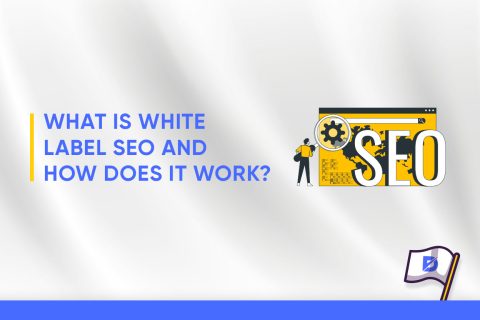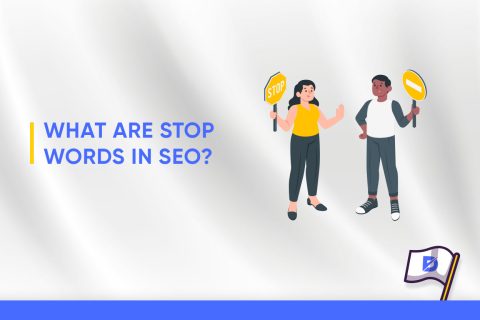Keeping up with the latest search engine optimization (SEO) developments is essential. One approach that has gained significant traction in recent years is topic based SEO. Businesses can create more comprehensive and user-centric content that resonates with their target audience by focusing on SEO topics rather than specific keywords. In this article, we will explore the concept of what is a topic based SEO, its relevance in modern marketing, and the value it brings to businesses. We’ll also touch upon related concepts such as entity-based SEO and topic marketing.
Understanding Topic-Based SEO
Topic-based SEO is an approach that revolves around creating content organized around a specific topic or theme rather than obsessing over individual keywords. SEO tools can help you with that. It recognizes that search engines, especially Google, have become increasingly sophisticated in understanding user intent and context. Instead of relying solely on keyword matching, search engines now aim to comprehend the overall topic and meaning behind a user’s query.
To implement topic base SEO effectively, businesses should start by conducting thorough keyword research to identify relevant topics and subtopics within their industry. Companies can create comprehensive content that addresses their target audience’s needs, preferences, and pain points by understanding the broader themes that users are searching for. This content is not only valuable for search engines but also provides users with a richer and more engaging experience. Don’t forget to check free SEO tools here!
The Role of SEO Topics in the Modern Marketing World
In the modern digital landscape, SEO topics play a crucial role in shaping marketing strategies. By adopting a topic based approach, businesses can align their content with the interests and needs of their target audience, establishing themselves as trusted authorities in their respective industries. Moreover, it allows for a more holistic and natural content creation process, enabling companies to cover a wide range of related subtopics under one overarching theme.
This approach also caters to evolving search engine algorithms, which are increasingly focused on user intent and context. By creating comprehensive content around a specific topic, businesses can improve their chances of ranking higher in search engine result pages (SERPs) and attracting organic traffic. Furthermore, topic based SEO enhances the overall user experience by providing valuable and relevant information that users seek, thereby increasing the likelihood of conversions and customer loyalty.

Entity-Based SEO and Topic Marketing
Entity-based SEO is closely related to topic based SEO. It involves optimizing content for entities, which can be:
- Individuals,
- Places, organizations,
- Or concepts.
Search engines now recognize entities and their relationships, allowing them to provide more accurate and relevant search results. By focusing on entities and their connections, businesses can improve their visibility in search results, especially for queries that involve specific entities.
On the other hand, topic marketing revolves around creating content and marketing campaigns centered around a specific topic. It goes beyond traditional keyword targeting and aims to build authority and thought leadership by offering valuable insights and information related to the chosen topic. By aligning marketing efforts with topic based SEO, businesses can attract a highly engaged audience, build brand credibility, and drive conversions.
The Values of Topic Based SEO
Topic based SEO offers several advantages that contribute to a business’s online success. Firstly, it enables businesses to create comprehensive and authoritative content that resonates with their target audience, increasing the likelihood of attracting organic traffic and establishing thought leadership. Secondly, by catering to user intent and providing a better user experience, businesses can enhance engagement metrics such as time on site, bounce rate, and conversion rates.
Additionally, topic based SEO allows businesses to adapt to the evolving search engine algorithms and their emphasis on context and relevancy. Companies can stay ahead of the competition by focusing on broader topics and maintaining visibility in search engine results. This approach also facilitates content repurposing and interlinking, as related subtopics can be connected under one central theme, enhancing the overall website structure and user navigation.

How to Write a Topic Based SEO Content
Let’s dive into learning practical tips on how to write topic based SEO content that drives organic traffic, enhances user experience, and boosts your website’s visibility in search engine results. Also, check the blogging guide for more!
Conduct Thorough Topic Research
Before diving into writing topic based SEO content, it is crucial to conduct thorough topic research. Start by identifying the main theme or subject your target audience is interested in. Utilize keyword research tools to discover relevant subtopics and related queries within your industry. This research will help you understand the broader context and user intent behind the topic, allowing you to effectively create comprehensive content that addresses their needs and queries.

Define a Clear Content Structure
Once you’ve selected a topic, outline a clear content structure encompassing all the relevant subtopics you want to cover. This structure will serve as a roadmap for your writing process, ensuring that you address key aspects of the topic comprehensively. Organize your content logically, using headings and subheadings to guide readers and search engines through the different sections of your article. A well-structured piece not only enhances user experience but also improves search engine crawl ability and indexing.
Optimize Your Content with Targeted Keywords
While SEO topics focus on broader themes, keywords still play a role in optimizing your content for search engines. The value of SEO takes a role in this stage. Incorporate relevant keywords strategically throughout your content to provide context and improve search engine visibility. However, avoid keyword stuffing or unnatural keyword usage, as this can negatively impact user experience and search engine rankings. Focus on using keywords naturally within your content while prioritizing overall coherence and readability.

Provide In-Depth and Comprehensive Information
One of the key advantages of SEO topics is the ability to provide in-depth and comprehensive information to your audience. Go beyond surface-level content and strive to become a reliable source of information. Conduct thorough research, cite credible sources, and offer unique insights and perspectives on the topic. By delivering valuable and authoritative content, you increase the likelihood of attracting organic traffic, earning backlinks, and establishing yourself as a trusted industry expert.
Incorporate Engaging Multimedia Elements
Incorporate engaging multimedia elements such as images, infographics, videos, and charts to enhance user engagement and make your content more visually appealing. These elements not only break up the text but also provide additional value to your audience. Optimize these multimedia elements with descriptive filenames, alt tags, and captions that align with your topic and keywords. Such optimizations can improve your content’s visibility in image and video search results, attracting a wider audience.

Focus on User Experience and Readability
While creating topic based SEO content, it’s crucial to prioritize user experience and readability. Write in a clear, concise, and engaging manner, using language that is accessible to your target audience. Break up your content into short paragraphs, use bullet points, and highlight important information to improve readability. Additionally, ensure your content is mobile-friendly and loads quickly, as user experience and site performance are key ranking factors in search engine algorithms.
Conclusion
As search engine algorithms become increasingly sophisticated, topic based SEO has emerged as a valuable strategy for businesses aiming to improve their online visibility and engage with their target audience effectively. By understanding what topic based SEO is, you can resonate with your audience and create authoritative and user-centric content that not only ranks well in search engine results but also builds brand credibility and fosters customer loyalty.
Frequently Asked Questions About
Traditional keyword-based SEO focuses on optimizing content for specific keywords, while topic based SEO takes a broader approach by creating content that covers a wide range of related subtopics within a central theme.
Topic based SEO encompasses creating comprehensive content around a specific theme, while topic clusters involve organizing content in a hierarchical structure around a pillar topic and its subtopics. Topic clusters use strategic internal linking to establish topical authority and improve search engine visibility, while topic-based SEO optimizes content for a broad topic and user intent.
You can incorporate relevant keywords naturally throughout your content.
Yes, you can use multimedia elements such as images, infographics, videos, and charts.
Use clear and concise language to ensure good readability, break up content into short paragraphs, and utilize formatting elements like bullet points and headings. Prioritize mobile-friendliness and fast page loading speed for an optimal user experience.





No comments to show.